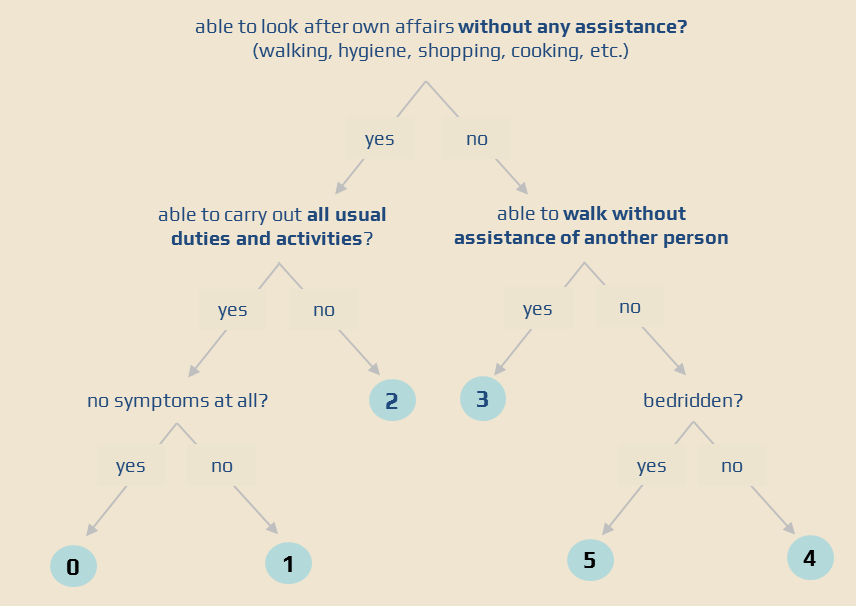Modified Rankin Scale (mRS)
Updated on 17/09/2023, published on 22/02/2022
- the modified Ranking scale (mRS) is used to assess functional outcomes (the degree of disability or dependence in daily activities) in patients who have suffered a stroke
- mRS has been used in clinical research for more than three decades
- mRS correlates with stroke type, lesion size, and neurological impairment as assessed by other stroke evaluation scales
- individual quality of life and independence are influenced by a wide variety of factors, including the presence of comorbidities
- mRS has been used in clinical research for more than three decades
- increased reliability of mRS assessments can be achieved through the employment of a structured interview
- mRS should be repeated over time to monitor recovery
| Modified Rankin Scale (mRS) | |
| 0 |
|
| 1 |
|
| 2 |
|
| 3 |
|
| 4 |
|
| 5 |
|
|
6
|
|
Standardized interview for the mRS (Yes/No questions)
- Are you experiencing any troubling symptoms?
- Can you perform all duties and activities as before?
- Are you able to keep up with your hobbies?
- Do you require assistance for basic tasks such as preparing a simple meal, performing household chores, or balancing a checkbook?
- Do you need assistance with shopping or short-distance travel?
- Do you require another individual to aid you in walking?
- Do you need help with eating, toileting, or bathing?
- Do you remain bedridden most of the day, requiring constant nursing care?



